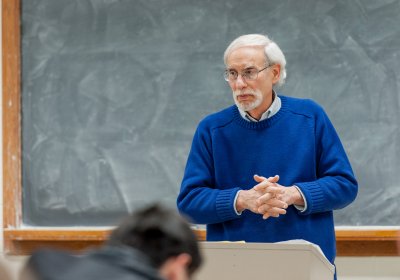Pasteur's empire: the colonial and anti-colonial politics of tuberculosis in France and its colonies
In the early decades of the twentieth century, bacteriologists working French colonies reimagined both the epidemiology and treatment of colonial tuberculosis. What once was seen as an ancient disease now became a European import.
In the metropole, treatment had been focused on social hygienist practices such as education, aeration of housing, handwashing, dispensaries, and sanatoria visits. However, in the colonies it became focused on one magic bullet: the BCG vaccine developed by the Pasteur Institute in 1924.
This reimagining of the French "disease of civilisation" had profound political consequences for colonial rule - mobilising colonial administrators to rethink their policies and anti-colonial activists from West Africa and Indochina to push for reform and call into question the fundamental tenets of the French "civilising mission".
This talk explores how bacteriological science shaped politics in a globally interconnected empire - from the barracks of Dakar and the hospitals of Saigon to colonial exhibitions and anti-colonial protests in 1930s Paris.
Speaker
Aro Velmet is assistant professor of history at the University of Southern California and a visiting researcher at the University of Tartu. He is the author of Pasteur's Empire: Bacteriology and Politics in France, Its Colonies, and the World (Oxford University Press, 2020). He works broadly on the history of empires, technoscience, and global governance, as well as on the history of gender and sexuality.
Please note that the time listed is Greenwich Mean Time (GMT)
Contact



